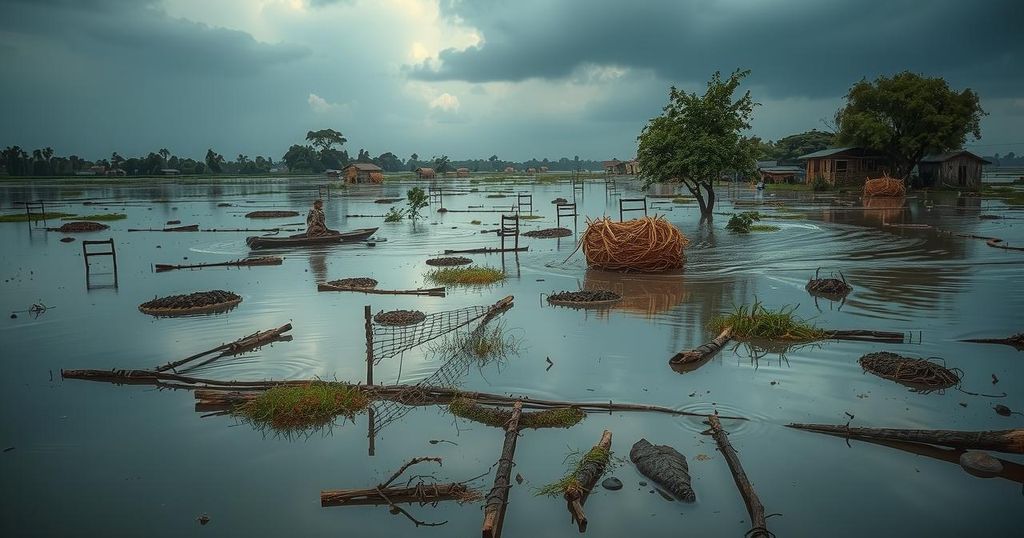Severe Flooding in South Sudan Intensifies Health Crisis

Severe flooding in South Sudan has displaced over 226,000 people and submerged numerous health facilities, intensifying an existing health crisis. With a focus on combating malaria and cholera, the WHO has rushed emergency health assistance to affected regions and is advocating for climate-resilient health systems to mitigate similar future disasters.
Severe flooding in South Sudan has reached catastrophic levels, resulting in significant humanitarian crises across the nation. As of October 4, 2024, the floods, which have impacted 42 out of 78 counties, have caused the displacement of over 226,000 individuals and submerged numerous health facilities. Primary access routes to the capital, Juba, have been cut off, complicating the situation for nearly 890,000 people in flood-affected areas. While seasonal rains traditionally lead to such flooding between April and November, climatic changes have intensified the extent and frequency, leading to permanent displacements in several communities. Particularly concerning is the exacerbation of health issues due to this flooding. South Sudan hosts around 800,000 refugees and returnees, many fleeing violence from neighboring Sudan. Recent health reports indicate suspected cholera cases, a spike in malaria with over 120,000 cases, and several snakebite incidents in affected regions. Dr. Humphrey Karamagi, the World Health Organization Representative in South Sudan, highlighted the critical need for essential health services amidst increasing vulnerabilities caused by these cumulative shocks. To aid those affected, the WHO has launched initiatives delivering approximately 88 metric tonnes of emergency health kits to crucial locations like Renk and Bentiu. These kits are designed to provide healthcare to over 870,000 people, containing essential medical supplies including antimalarial medications and cholera diagnostic tools. Additionally, the WHO continues to improve health infrastructure resilience and response strategies by collaborating with local health authorities and community leaders. Monitoring continues regarding the health impacts of flooding, particularly focusing on vector-borne and water-borne diseases. Furthermore, the organization actively advocates for climate-resilient health systems across the African region, aiming to mitigate and adapt to the health challenges posed by climate change.
The flooding in South Sudan during its rainy season, exacerbated by climate change, presents a severe challenge. With substantial rainfall leading to the inundation of large areas, the situation has compounded the pre-existing health crisis in the country. The concentration of refugees from conflict regions emphasizes the urgency of the health response, as these displaced populations are particularly vulnerable to waterborne diseases and other health emergencies. The WHO’s efforts in delivering health kits and coordinating with local authorities illustrate the ongoing commitment to improving health outcomes amidst these crises.
In summary, South Sudan is grappling with unprecedented flooding that not only displaces thousands but also jeopardizes the health of a significantly affected population. The concerted efforts by WHO and local organizations to provide emergency health services are vital in addressing the immediate needs. However, there remains a pressing necessity to continue developing resilient health systems that can withstand the ongoing effects of climate change and other crises.
Original Source: www.afro.who.int






